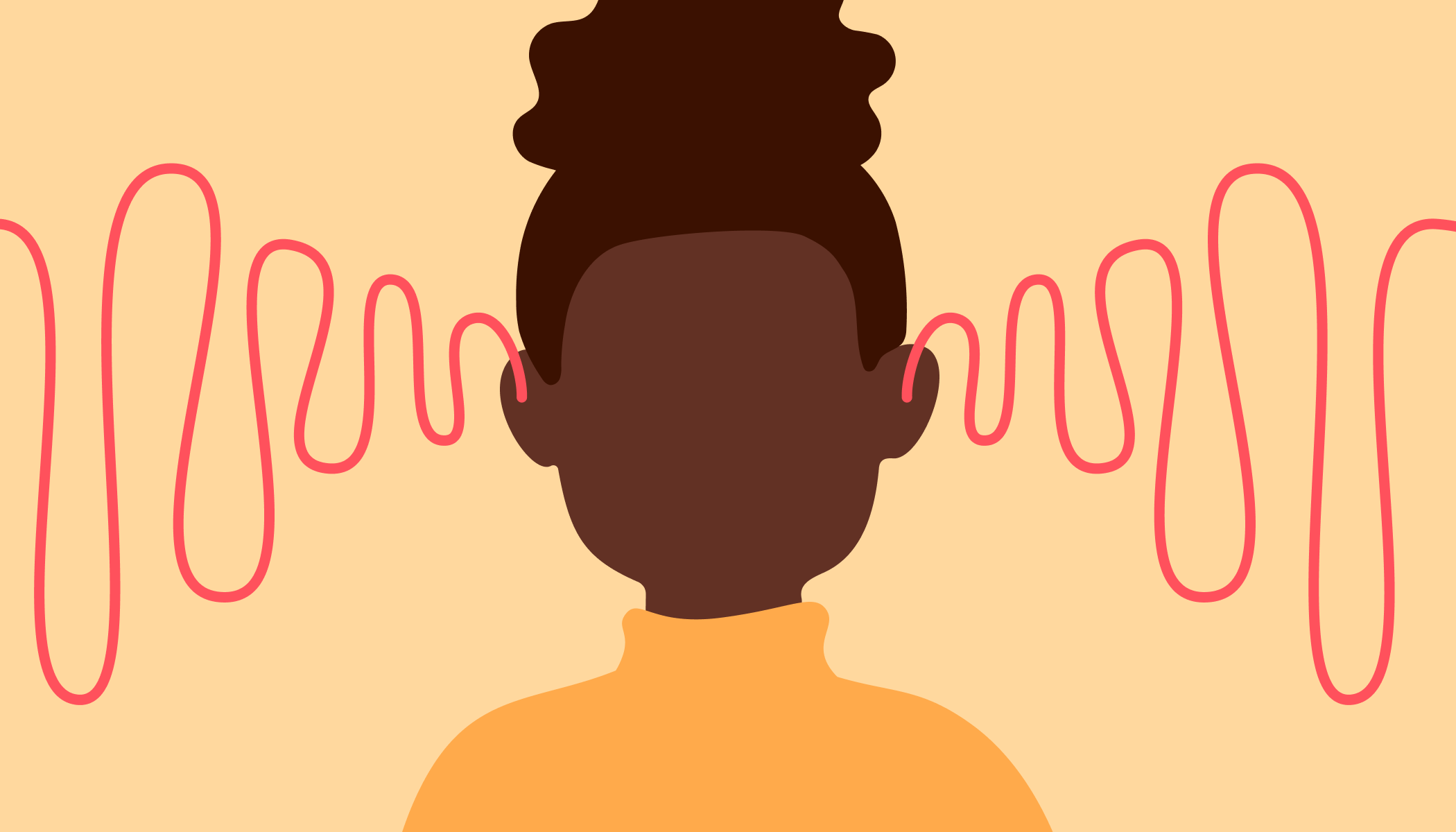Hearing ringing in your ears is called tinnitus. It’s when you experience noises that only you can hear and aren’t coming from anything around you.
As many as 1 in 7 adults have tinnitus, and although the sensation is strange and can be quite annoying, it’s usually nothing to worry about.
For lots of people, tinnitus gets better on its own. In the meantime, it can help to understand the most common causes of ringing in the ears and what you can do to ease your symptoms.
What does tinnitus sound and feel like?
Tinnitus usually sounds like a high-pitched ringing in your ears, though it can also be a whooshing, sizzling, buzzing or pulsing noise. You might hear the noises in one ear or both, or it can feel like it comes from inside your head.
Tinnitus often comes and goes, and some people find it gets worse at night. This is probably because there’s less going on to distract you from the noise.
What causes ringing in the ears?
Scientists think tinnitus is caused by a change in how sounds are processed in the brain, which starts when your hearing is damaged.
Studies suggest that the brain tries to make up for the hearing loss by increasing activity in the nerve cells responsible for high-pitched sounds. This causes you to hear sounds that aren’t there.
There are lots of triggers for tinnitus and sometimes it’s as simple as built up earwax, which a doctor can remove. Depending on what’s causing the ringing in your ears, you may experience other symptoms.
1. Damage to your hearing
Ringing in the ears is linked to hearing damage, which can be age-related or caused by loud sounds. It could be noises related to your job, like drilling on construction sites, or listening to loud music.
There are little hairs in your ears that vibrate when sound waves hit them, which is how noises reach your brain. Tinnitus and hearing loss can occur when these hairs are damaged. The louder the sound and the longer you listen to it, the more likely you are to experience hearing loss.
What should I do? The best strategy here is to protect your hearing before the damage happens. Keep loud music to a minimum and wear ear defenders when you’re exposed to loud noises.
2. An ear infection
If you have pain or pressure in your ears, then an ear infection is the most likely culprit behind your tinnitus. Other signs of an ear infection include a high temperature, itching around the ear and ear discharge.
What should I do? Make an appointment with a doctor if it doesn’t clear up within a couple of days.
3. A change to your blood pressure
If you hear a rhythmic or pulsing noise that syncs with your heart beat, then you may have pulsatile tinnitus. It’s related to a change in your blood pressure, which can be caused by exercise, pregnancy or hypertension.
What should I do? If you’re getting this regularly then it’s best to speak to a doctor.
4. Other health conditions
Sometimes tinnitus is related to other health conditions, including mental and physical conditions.
Ringing in the ears can be linked to anxiety, depression, and stress. Getting help with mental health can ease tinnitus symptoms.
There are links between tinnitus and diabetes, thyroid disorders and multiple sclerosis. Some medicines cause ringing in the ears too, including chemotherapy, antibiotics and certain painkillers.
Meniere’s disease is a set of symptoms including dizziness, headaches, hearing loss and tinnitus. It’s not common but it’s worth speaking to a doctor if you’re worried – there are treatments available.
How long does tinnitus last?
It’s hard to say exactly how long tinnitus lasts because of the variety of causes. One scientific study found that people’s symptoms tend to improve over time rather than getting worse.
How can I stop the ringing in my ears?
Although there isn’t a direct cure for tinnitus, there are things to help you reduce the triggers and cope with the irritation it can cause.
1. Be mindful of volume
Avoiding any further hearing damage is important if you have tinnitus symptoms. Watch the volume and the length of time you’re exposed to loud sounds. Avoid in-ear headphones, reduce volume levels and wear ear protection.
2. Limit your risk factors
You can take lifestyle steps to reduce your risk of tinnitus or further hearing damage. Smoking, vaping, having poorly controlled diabetes or uncontrolled hypertension can cause damage to the small structures inside your ears, increasing your risk of age-related or noise-related hearing loss.
3. Avoid total silence
Tinnitus often feels most intrusive when there are no other sounds to distract you. Some people find that playing quiet background music or white noise helps, especially when going off to sleep.
4. Try therapy
If tinnitus is disrupting your life or sleep, therapy might be helpful. The idea is to help manage any anxiety and give you the coping tools to make tinnitus less stressful.
When should I speak to a doctor about tinnitus?
If you notice ringing in your ears regularly, it’s worth talking to a doctor.
You should also book an appointment if:
- Your symptoms are getting worse
- Tinnitus is affecting your sleep or worrying you
- The tinnitus pulses with your heartbeat
Get medical help immediately if you develop tinnitus after a head injury or if you have sudden hearing loss or dizziness.
This article has been medically approved by Livi Lead GP, Dr Bryony Henderson.


